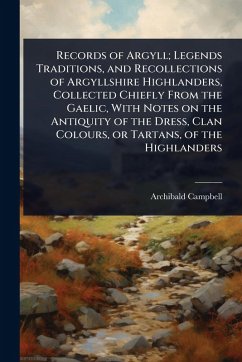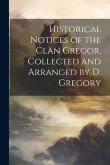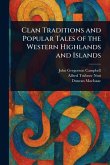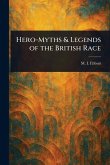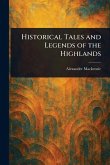âRecords of Argyllâ is a rich compilation of legends, traditions, and recollections gathered from the Gaelic-speaking Highlanders of Argyllshire. Authored by Archibald Campbell, this work offers invaluable insights into the social customs, historical narratives, and unique cultural identity of the Argyll region. It delves into the antiquity of Highland dress, clan colors, and tartans, providing a detailed look at these iconic symbols of Scottish heritage. Campbell's meticulous collection preserves oral traditions and historical accounts, making it an essential resource for understanding the Highland way of life and the historical context of Argyll. This book is a treasure for historians, folklorists, and anyone interested in the vibrant cultural tapestry of Scotland. This work has been selected by scholars as being culturally important, and is part of the knowledge base of civilization as we know it. This work was reproduced from the original artifact, and remains as true to the original work as possible. Therefore, you will see the original copyright references, library stamps (as most of these works have been housed in our most important libraries around the world), and other notations in the work. This work is in the public domain in the United States of America, and possibly other nations. Within the United States, you may freely copy and distribute this work, as no entity (individual or corporate) has a copyright on the body of the work. As a reproduction of a historical artifact, this work may contain missing or blurred pages, poor pictures, errant marks, etc. Scholars believe, and we concur, that this work is important enough to be preserved, reproduced, and made generally available to the public. We appreciate your support of the preservation process, and thank you for being an important part of keeping this knowledge alive and relevant.
Bitte wählen Sie Ihr Anliegen aus.
Rechnungen
Retourenschein anfordern
Bestellstatus
Storno

